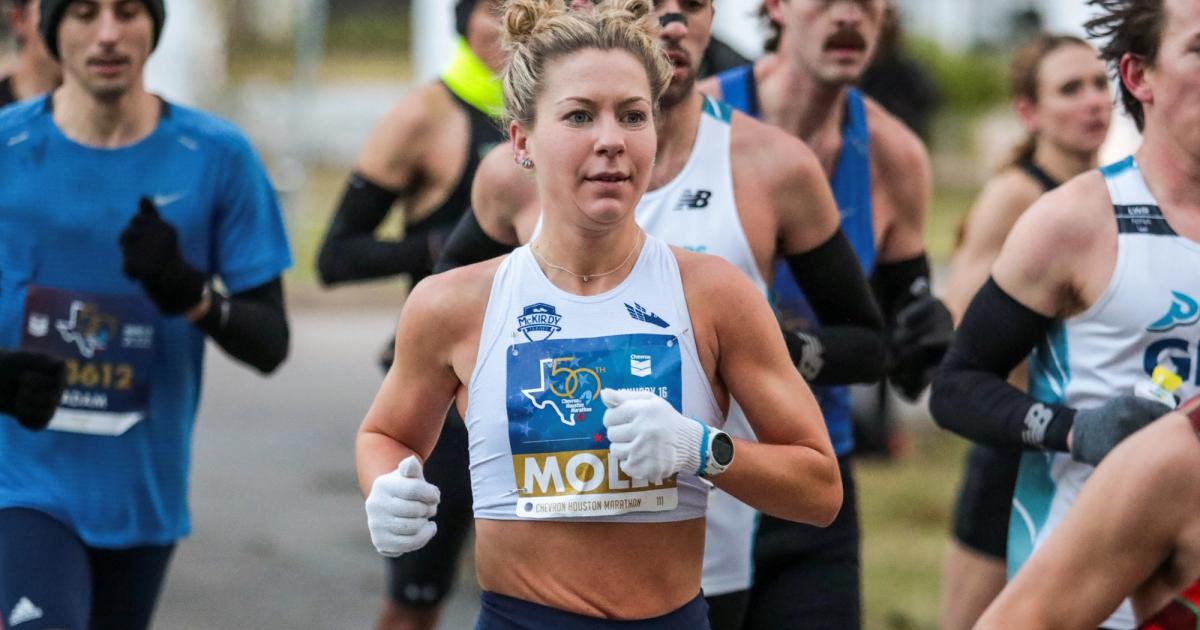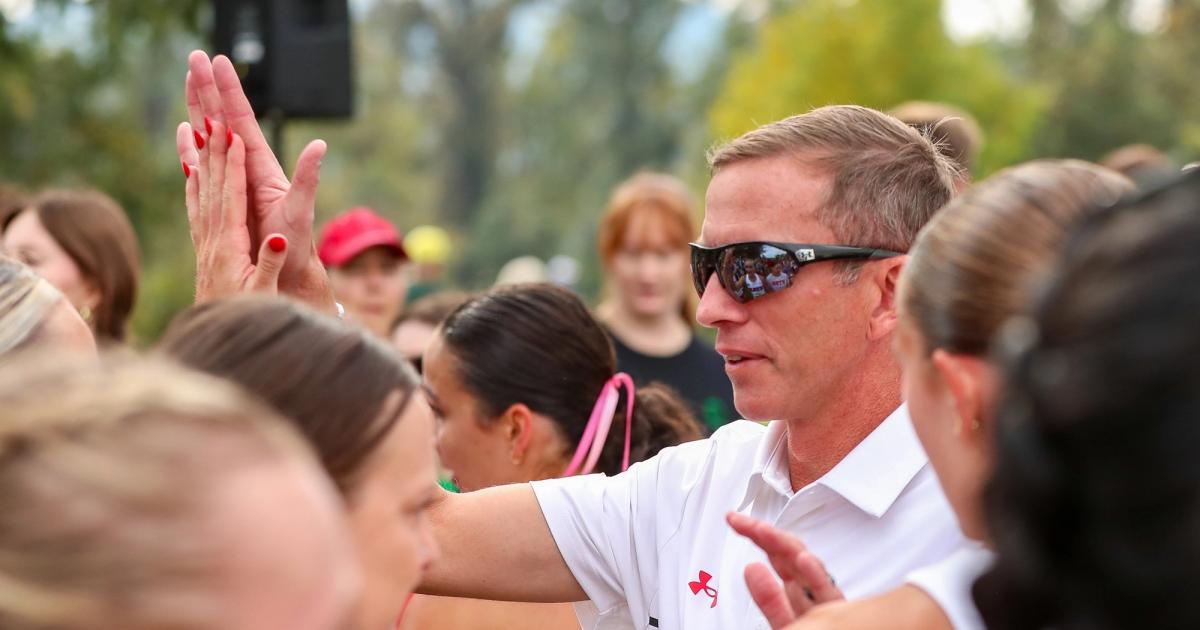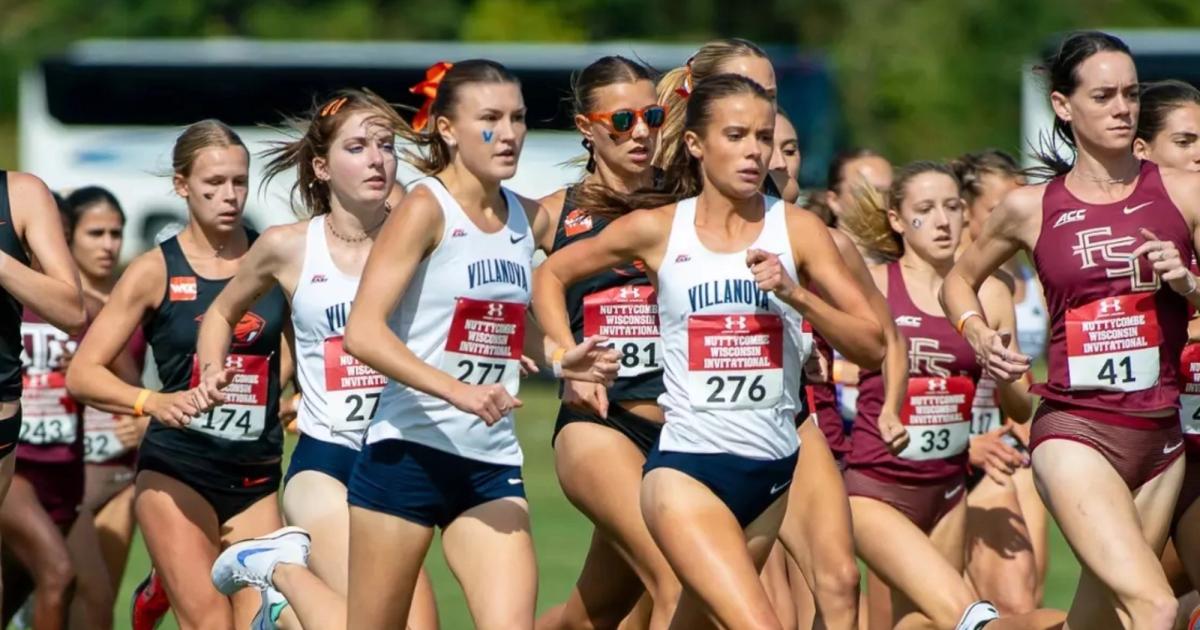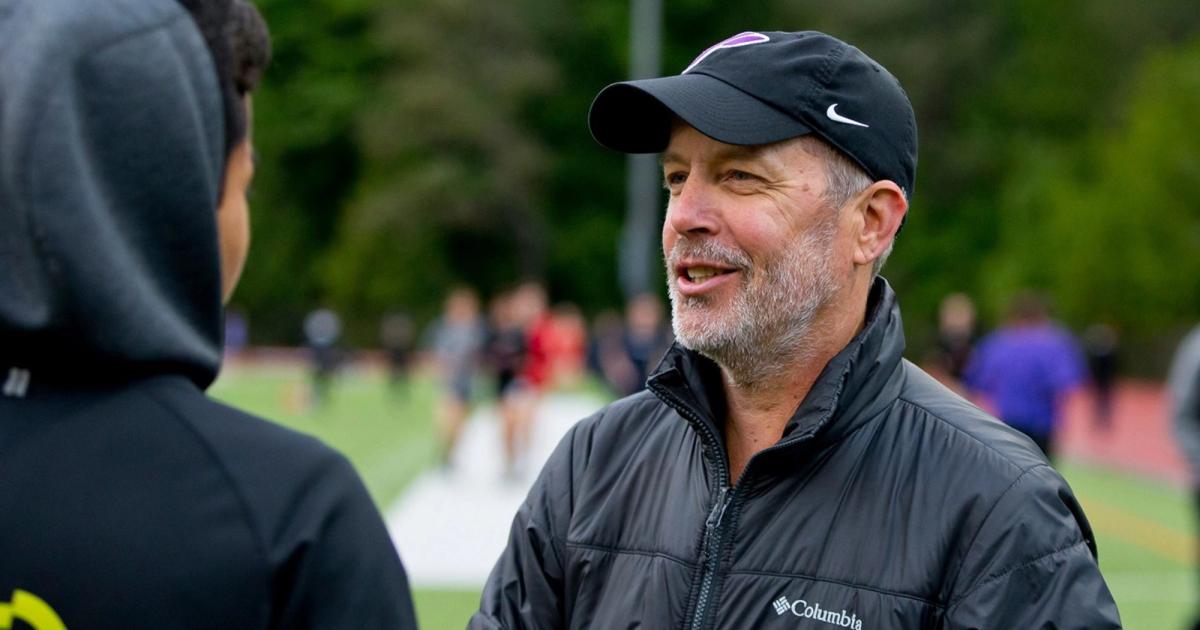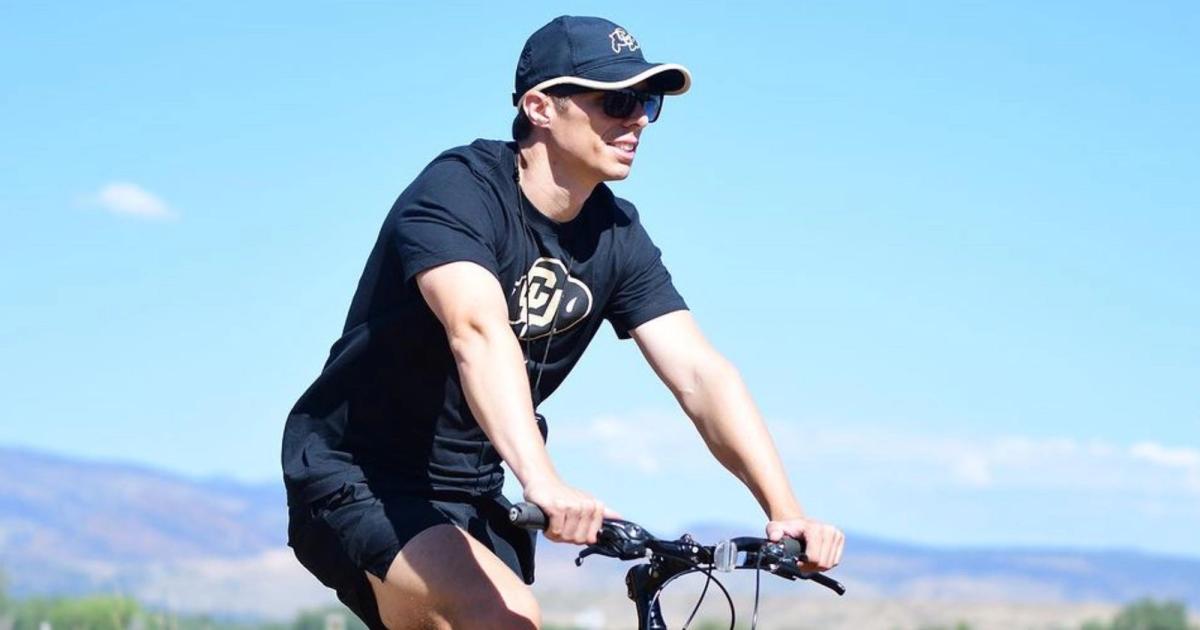By Jasmine Fehr
November 5, 2024
"Life isn't easy. Running after these big goals is not easy. But it's worth it. If you find something you love doing, you should keep going after it. "
Molly Bookmyer joined us for an interview a few weeks after setting a personal best of 2:28:52 to break the tape at the 2024 Twin Cities Marathon. Over the years, Molly has shown a steady progression in the marathon, debuting in 2018 with a time of 2:46 and gradually shaving off minutes each year until finally having her biggest breakthrough yet at Twin Cities.
Molly’s path to becoming an elite marathoner has been anything but linear. She began as a walk-on at Ohio State, but her running career came to a halt when she was diagnosed with a brain tumor. After two brain surgeries and navigating years of challenges and setbacks, Molly has defied the odds to become one of America’s top distance runners. Her journey is one of the most impactful, inspiring stories in the sport.
In our interview, Molly shares about her breakthrough at Twin Cities, opens up about the health challenges she's faced, how she balances working full-time with training, and what her biggest dreams are for her running career.
This interview has been edited lightly for length and clarity.
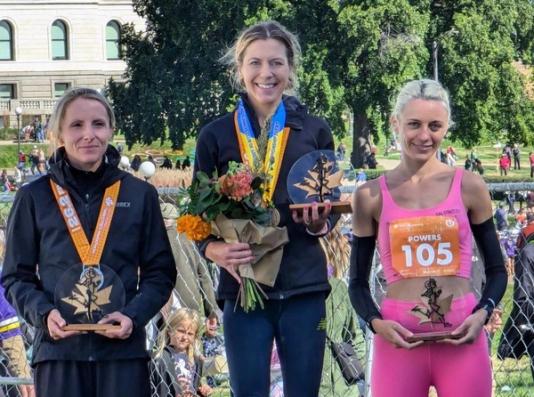
Molly Bookmyer / @mollybookie
Jasmine Fehr: Molly, you just won the 2024 Twin Cities Marathon last month. You ran a new personal best of 2:28 to dip below 2:30 for the first time. Now that it’s been a few weeks, what are your reflections and how are you feeling?
Molly Bookmyer: Ten days out from the race, my family was going through a hard time because my father-in-law passed away unexpectedly. I was questioning whether or not I should even run the race because it was pretty emotional and sad.
But I had some time to process it. I wanted to go to the race and just do my best and never give up. I feel like that's what I did; I executed my race plan and stayed in it the whole time. That's what I'm most proud of: not giving up, executing my race plan, taking what the day gave me and making the most of it.
Was there a part of you that was trying to channel that grief into running in his honor and doing it for him in a way?
I promised my husband that I would run the race because we were with [my father-in-law] as he passed away. We were able to spend time with him and have a lot of conversations.
So when I was questioning if I shouldn't run the race… really there wasn't a question. It was like, ‘I have to do it for him.’ Remembering why I was out there was in the back of my head when the race was getting tough: to make my family proud and to make myself proud. We all have different reasons why we're out there, but doing it for somebody else sometimes makes it easier.
During your build for this marathon, did you have signs along the way that you were ready for a sub-2:30 performance? Or was that a bit of a shock for you?
I've had consistent, good training for a while, but I always felt like I would go to these races and wasn't able to put together all the pieces. So this spring the goal was to race more, to build some confidence, and be able to figure out how to put together races at a more competitive level.
One of my breakthrough weekends was at the Pittsburgh Half Marathon. That course was super difficult. It was raining that day and I actually fell and slipped on the wet ground and I still finished second. Six days later, I came back and ran the 25K championships in a super deep field. I ran a three-minute PR of 1:24 and I think I came through the half in 1:10-high.
Just being able to race two big races within six days of each other gave me a lot of confidence that my training was going well and that I could execute this race a little bit better. I drew a lot from those experiences along with just having consistent, healthy training going into Twin Cities.
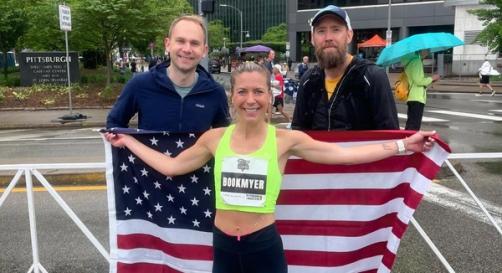
Molly Bookmyer / @mollybookie
Earlier in your career, you were a walk-on at Ohio State and then underwent two brain surgeries. You came back to have this amazing marathon career and are continuing to improve race after race. Can you share a little bit about your story?
I was not very good in high school, but I did have the opportunity to walk-on in college. I only ran for a couple of years; I actually left the team because I was frustrated and got injured a lot. But then I was undergoing tests to figure out why I was getting injured and they actually found a brain tumor in my ventricle. I had to do a couple of different tests and we tracked it for about two years.
In 2015, I had surgery at the Cleveland Clinic to remove the tumor. It was a pretty intense surgery and I had to stay home from work for six to eight weeks. I lived with my parents. I had some complications and had to go back to the hospital for some time because there was swelling in my brain, so it was a pretty difficult comeback.
Then three months after my first surgery, I was back in Columbus and woke up in the middle of the night really sick, throwing up blood. I ended up going to the emergency room and they transported me by ambulance to Cleveland. I underwent emergency brain surgery that night. I had something called hydrocephalus, which is water in the brain that causes all this pressure… It was just giving me these terrible headaches. So that was my second surgery.
At the time, it never even crossed my mind to be a competitive runner. I was just able to start walking and I started using the treadmill just to get healthy again. Then I started jogging a little bit just to get myself healthy. Unfortunately later that year, I was running on the treadmill and suffered a seizure, so I had to regroup. I had to start seizure medication, which has some pretty difficult side effects. It took me a while to get used to that, but I used running at that point to get myself healthy and do it because I loved it. It was my stress relief after work. So at those points in my life, I was just using it to get myself healthy and stay in shape a little bit.
At what point did it transition to competitive running at this high level you’ve reached?
My surgeries were in 2015 and then two years later I got married. Within a month, right when we got back from our honeymoon, my husband was diagnosed with testicular cancer and had to undergo surgeries and treatments. That was when I started running more… not as much as I am right now, but maybe 60 miles a week. I just needed it because I was working full-time and I was his primary caretaker, living alone with him in Columbus. Running was, again, my stress reliever.
At the time, I set the goal to run Grandma's Marathon in June 2018. And that's what I did. I mean… I went to that race and I wore my iPod shuffle, which was totally illegal. You're not supposed to wear headphones, but I knew none of the rules. I got into this group of girls who were shooting for the OTQ standard. I didn't go into the race with any expectation of doing that, but there was just such a good vibe amongst the girls going for it, so I stayed with them and ended up running a 2:46. After that race I was like, ‘Man, if I can run 2:46 after going through all of this, maybe I should try to hit that standard.’ Then things moved pretty quickly.
I hit the standard later that year and then ran my first U.S. championship race at the 25K when I placed third in 2019. Things were going really well and I was getting into running at a higher level. Unfortunately I had some injuries right after, but I think that was my first initial ‘dipping my toes’ into running at a higher level.
You mentioned that you were working full-time and running on the side. Do you still work full-time? If you do, how does running fit into your schedule? How do you find balance between the two?
I still work full-time. It's not easy, but I love training, I love running, and I still want to pursue my absolute best at running. So I just make it work.
I run twice a day, before and after work. I have a remote job so it makes it a little bit easier because I have some flexibility. I've also been working in corporate America for over ten years, so I have experience. Luckily my management trusts that I’m going to get my work done and that I’m going to do a good job.
I definitely work really hard and have a lot of pride in my day job – maybe that's what makes me strive at running too, just being a hard worker. It's not easy. But if you want to do something, you can make it work. So that's what I do.
You also mentioned that one of your first big races was your 2:46 marathon. You’ve taken almost 20 minutes off your time since then. What do you attribute that progress to?
I think just continually building and building. I don't think I ever had one huge drop at one time. I've been continuously working over the years and building more mileage and getting a bit faster. I've learned so much about myself: what miles and workouts I can handle and what fueling I need to be able to stay healthy. At some points I wasn't fueling enough for races and I would crash. I think it was just continuing to increase mileage consistently over the years and being willing to learn about myself. I've made a lot of mistakes and I've had a lot of setbacks. But if you can learn from them, you keep ‘falling forward’ and you keep making that progress. If you keep putting in the work over the years, you just want to keep going.
Can you share more about what you mean by ‘falling forward’?
In 2019, I had a sacral stress fracture. It was right after I placed third in the 25K championships and I was trying to get ready for the 2020 [Olympic] Trials. Then I ended up getting a femoral neck stress fracture the week of the Trials, so I wasn't able to race.
That was a big learning experience for me. I don't think I prioritized recovery as much from the sacral stress fracture. As heartbreaking as I was at the time to not compete in 2020, I learned a lot. And now I definitely prioritize recovery… making sure if I have a big injury that I respect the injury and respect the recovery because I don't want to have back-to-back injuries.
I think the biggest piece is building the community around me. I train mostly alone, but I have a couple of girls that I run with every once in a while. And my husband is super supportive. So whenever I have those setbacks, it's really about talking openly with my support system and having them help me figure out what I need to be successful moving forward.
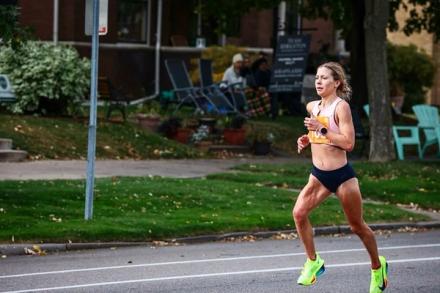
Molly Bookmyer / @mollybookie
You're running before work. You're running after work. How do you fit in recovery? What does that look like for you?
Sleep is the most important thing. Unfortunately, I am working all day so I don't have time to take naps, but I go to bed really early. That's the number one thing that I do: get a lot of sleep and go to bed at 8:30pm every night. It's really early, but it's what I need to do.
I definitely have tried to get better about fueling right after my runs in the morning, making sure I'm eating something with protein and just eating all throughout the day. The nice thing about having a remote job is that I don't have to pack my lunches anymore. I have my fridge and I can eat whatever I need throughout the day.
A year and a half ago I tore my planter, which was very painful, and I learned a lot from that as well. I wear inserts now and work pretty closely with a physical therapist. Three years ago, I was not doing any PT work. I probably was not doing any warm-ups before my runs, I was just going out the door and running.
Now I’m prioritizing getting in all the little things that you're supposed to do, like doing my PT routine to strengthen my hips and lifting a little bit more and just trying to be better. I think it's helping.
The little things seem little, but they add up and make such a difference.
I was just having this conversation with my coach. Strides are not my favorite thing to do, but I'm trying to get better about doing all those little things because that's what's going to make me faster and make the next jump.
Especially strides as a marathoner – that's tough!
Yes! I have to make myself do those. I have a little check box I need to fill out in doing my strides.
Looking ahead to future marathons, what are your biggest goals and aspirations and where do you want to take things next in your career?
The standard just came out for the [2025] World Championships. It's a five-minute drop from where I am right now, which might seem like a lot from the outside. But Twin Cities is a rolling, hilly course, and we didn't have perfect weather. We had some wind, there was a difficult climb at the end, and I ran mostly by myself. So I think from the outside, a five-minute drop seems significant. But knowing what I did that day… I think [the World Championships standard] is the goal and it’s something fun and exciting to go after.
My goal is to run a marathon this spring on a quicker course with some more competition to see if I can run a little bit faster. I plan to keep building my mileage and workouts to keep closing the gap. I mean, everybody keeps running faster. We all have to keep getting faster in order to keep up.
That's my short-term goal…. maybe it will take six months, maybe four years, maybe I'll never hit it. That's where I'm at right now and that excites me.
And I enjoy sharing my story. My background is different from a lot of professional runners. I used to think that was a bad thing, having gone through different experiences and maybe not being fast in high school or college. I think it would be really cool to eventually find a [sponsor] to help share my journey a little more and maybe inspire some people who have had different backgrounds.
The World Championships standard [2:23] isn’t that far off. You never know.
Again, that’s what excites me. And for goals, that's what they need to be. They need to be goals that excite me. Getting to 2:28 was the first step I needed to take. I don't think I could have gone into a race and been like, ‘Okay, I need to drop 15 minutes from my time.’ That would not have been realistic. The first step was getting under 2:30 and running 2:28 was what I needed to do. I just want to keep moving on from there.
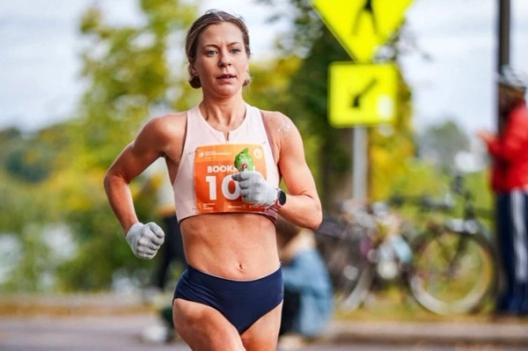
Molly Bookmyer / @mollybookie
Do you have a race on the calendar or are you just training right now?
I know what race I'm going to be running in the spring. I can't share it yet, but I'm really excited and hopeful about it. I want to do a couple of races leading into it.
The plan right now is just to build over the winter. I need more miles, I need to get stronger, and I need to get a bit faster with my workouts. So my coach and I are going to spend time doing it smart. We're going to increase the miles and add in the strength to build a base and then race more in the spring.
I can't wait to hear about the announcement! To close things out, is there a parting message that you want to leave with our readers?
I listened to this podcast by Rich Roll where he interviewed a professional ultramarathon swimmer who talked about this word ‘eudaimonia.’ It's basically about finding happiness in a life that's full of struggles, hardships, and challenges. But if you're doing something that you absolutely love, and it excites you and fuels your day and your passion through all the challenges, you can still find happiness.
Ever since listening to that podcast, the word has really resonated with me. It’s made me keep going. So that's my parting message: life isn't easy. Running after these big goals is not easy. But it's worth it. If you find something you love doing, you should just keep going after it.
That’s amazing advice! Thank you so much for joining us and good luck with training and in your coming races!
___________________
Keep up with all things track and field by following us across Instagram, X, and YouTube. Catch the latest episodes of the CITIUS MAG Podcast on Spotify and Apple Podcasts. For more, subscribe to The Lap Count and CITIUS MAG Newsletter for the top running news delivered straight to your inbox.
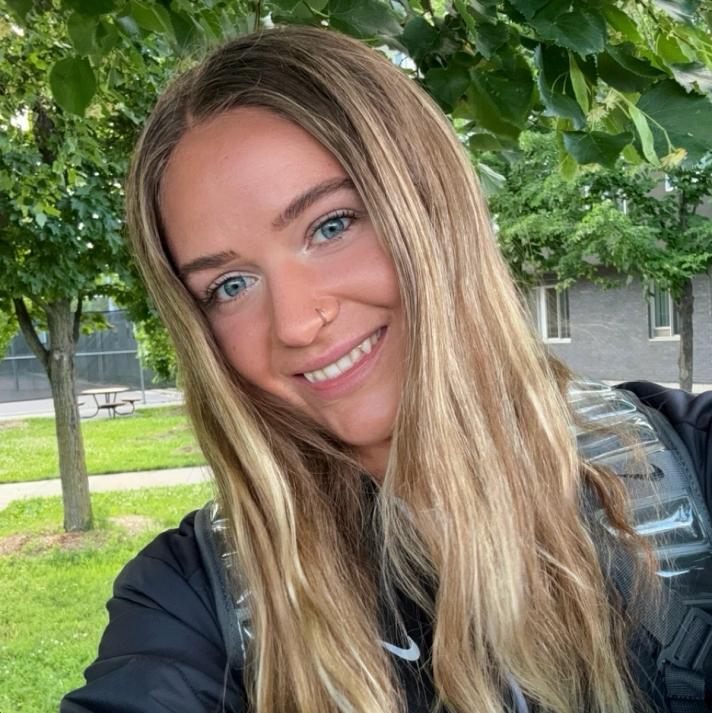
Jasmine Fehr
Jasmine Fehr produces the CITIUS MAG Podcast, manages our website, and shares content across our socials. She’s a marathon runner training in Flagstaff, Arizona. Her collegiate running career spanned the University of Portland and the University of Tennessee, where she earned a Bachelor’s degree in Psychology and Master’s degree in Communications.
